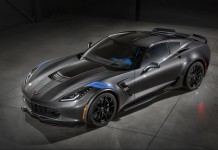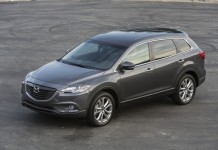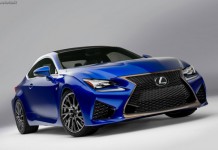The sports car scene is easily one of the toughest to break into. Included in the segment are some of the most cult-building vehicles ever conceived. These cars carry with them strong loyalty and more often than not, highly opinionated owners. Icons such as the Nissan Z Cars, Mazda RX cars, BMW’s 3-Series Coupes, Ford’s Mustang and Chevrolet’s Camaro battle each other every day for sports car supremacy on and off the race track. Even though it may be impossible to determine the honest-to-goodness best pick, it is always interesting to see a newcomer arrive to make an attempt. In 2009, Hyundai did just that by introducing their version of the Niszda 35X-8i Mamaro, the Genesis Coupe. Following the same basic recipe that made those icons so successful, the Korean brand set about proving that a former economy-car-only company can in fact make a legitimate sports car. On paper, it may just be another razor-sharp 2+2 but the 2011 Hyundai Genesis Coupe R-Spec is a little more than just that in the real world.

Purpose built as Hyundai’s first rear wheel drive sports car, the Genesis Coupe debuted alongside its four door brother late in 2008. Still currently in its first generation, the two-door has only received a few trim changes and updates in its short life. Its suspenders haven’t changed since the 111 inch wheelbase and 73.4 inch width are the same in 2011 as they were three years ago. Those dimensions are right on par with the likes of the Infiniti G37 Coupe and Ford Mustang. With two engine options and two transmissions to go along with, the Genesis Coupe has more than a few available trims to satisfy most any type of driver.


For our time spent with the Korean Camaro, we tested a 2.0T R-Spec with the six speed manual transmission. Designed to be the hardest-edge trim level, both R-Specs (the 2.0T and 3.8) come equipped with a special, track-tuned suspension with struts up front and a multi-link rear, front camber adjusters, a Torsen limited slip differential, 19 inch wheels and Brembo supplied brakes. Inside are special black leather seats with bolsters and that’s about it. The R-Spec doesn’t offer Navigation, premium stereo, HomeLink or any add-on packages as in all honesty, its true home is a mountain road or autocross course. Bathed in Tsukuba Red, our tester carried an MSRP of $25,350 with destination charge.




Powering our R-Spec is the turbocharged version of Hyundai’s Theta four cylinder. Displacing 2.0 liters and using a double overhead cam design and variable valve timing, the mill features an all-alluminum construction. Breathing through a single turbocharger, the Genesis puts out 210 horsepower and 223 lb-ft of torque on regular fuel. If filled up with 93 octane, horsepower figures should jump up to 223. Honestly on the lower side, those figures are more than likely purposely kept down to boost V6 sales. The Theta easily has the ability to pump out more power as the Sonata Turbo uses the same engine with gasoline direct injection to make 274 horsepower. It is also very closely related to the 4B11 found in the Mitsubishi EVO X and that makes anywhere from 300 to 500 horsepower in street cars; maybe more. Why Hyundai decided to keep the 2.0T R-Spec at just 210 horsepower is a true mystery, but that doesn’t mean it’s slow. Due to the weight savings of the trim and the six speed manual’s well placed ratios, 60 mph can be found in about 6.8 seconds. The quarter-mile can pass by in 15 seconds and a top speed of 144 mph can be achieved. Sitting in the left-hand seat, a driver feels mostly torque as the 2.0 liter delivers decent low-end grunt, especially in the “around-town” gears. If pushed to redline, smiles can be had but there is still feeling left behind of wanting more. If Hyundai want’s 2.0T sales to rise, adding GDI would be the right step.


Once the quarter-mile disappears and a corner’s apex shows its face, all is forgiven. The R-Spec rewards with its lower profile tires, stiffer suspension and limited slip differential. If pushed hard enough, the tail will kick out to make Rhys Millan proud and controlling the slide is relatively easy. Turn-in is quick enough while the steering wheel and short shifter are placed just right for fast driving. Body roll is virtually none and the longish wheelbase allows for sweeping on ramps to be tackled at a far-too fast pace. When the next corner comes up, the Brembo brakes offer instant stops and the confidence of knowing they will never fade; ever. This might as well be the building block for a track car as all the ingredients are there to make the R-Spec competitive.

It may dazzle in corners, but the track-tuned suspension is indeed tuned for the track. At low speeds and in traffic, the R-Spec does crash over bumps and imperfections more often than not. The ride can get harsh at sometimes but it is never so bad that it becomes annoying. The Genesis can easily be driven to a race day, driven hard and then driven home without any headache. Road noise isn’t intrusive and despite the lack of a premium stereo, the sound is clear and enjoyable. Fitted with the bolstered seats, comfort is surprising and the R-Spec can be piloted straight for miles without lower body complaints. With its bare-bones interior, the R-Spec is refreshingly simple and the controls are always in the right place. Of course, more ‘stuff’ could be had on the inside but if tech was to be added, this car wouldn’t be what it was built to be: a blank canvas.





There is a reason why Hyundai offers various trim levels of the Genesis Coupe. There is the luxury and class filled Premium, the long hauling Grand Touring and the all-out and pricier 370Z killer 3.8 Track. The R-Spec is the wild child of the group; the one who doesn’t really care that it has faults. The interior lacks certain features for a reason and the suspension is tight and angry on purpose. With more and more aftermarket companies picking up 2.0T Coupes as project cars, the Genesis is building a rather healthy high performance market. If wanted, a R-Spec owner could have an excessively fast car as the Theta is itching for its boost to be turned up and the suspension is ready to deal with any added thrust. And at $25 grand, entry into a dead reliable track car is dirt cheap compared to other offerings. Not to mention that a lot of the Genesis competition lack the Hyundai’s classy look which quietly screams style and aggression. On top of that, there flat-out isn’t a sports car on the market that can match the R-Spec’s standard 100,000 mile/10 year full powertrain warranty. Left alone, the 2.0T can entertain an enthusiast with its quick steering, powerful brakes and responsive turbocharged engine. But with endless possibilities for faster performance to be had, the R-Spec is a fantastic way to build the next ultimate street or track car. It’s a low-cost and reliable mode of sporty motoring and reason enough to make the 2011 Hyundai Genesis Coupe R-Spec a winner in our book.
Photos: © Copyright 2011 Ossamah Shabbir








